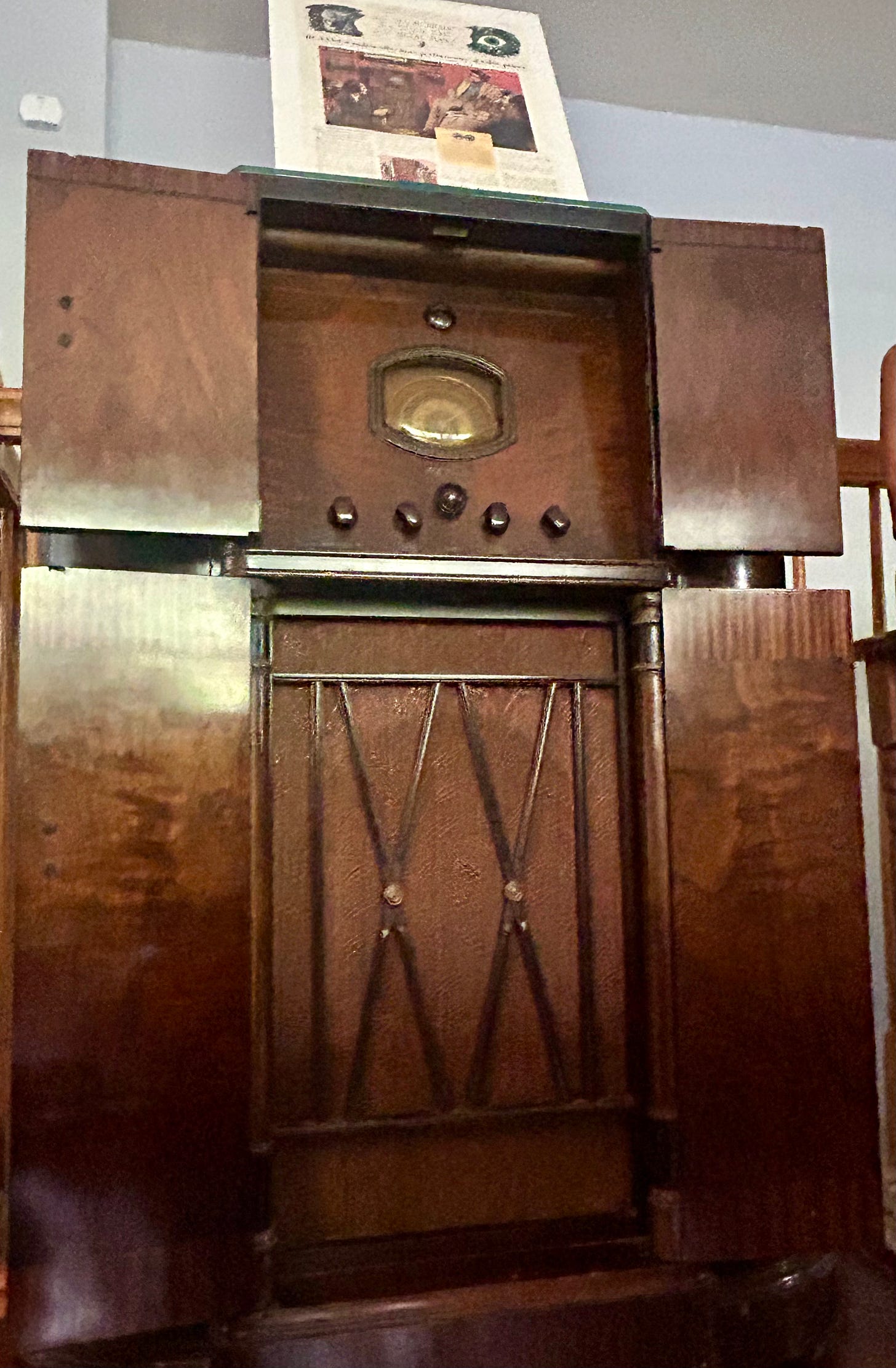This is the latest significant addition to my classic radio collection. It is the RCA Victor 13-2. It is heavy at 100 pounds and offers a weighty history lesson.
The year was 1936 and this new 13-tube receiver was one of the best on the market. The advertisements in the major magazines touted the radio’s "Magic Brain," (a futuristic-sounding marketing gimmick), a "Magic Eye" (for precise tuning) and the innovation of metal vacuum tubes (supposedly superior in performance and longevity to glass envelopes). It covered five bands (from 140 kilocycles all the way up to what was ultra-high frequency in those days, 73 megacycles).
The new console would have set the buyer back $189.50 (equivalent to $4,300 today). RCA declared it was "priced within everyone's reach." In reality, it would have cost nearly two month's pay for the average working man at a time when the U.S. unemployment rate was 17%.
I know the provenance of the set I acquired. It was purchased new in Brooklyn by a young Jewish couple. The husband was a Western Union man, who started out as a telegrapher. The radio, with its prominent place in the living room, became a heirloom. A cat would gaze down at the family from atop the protective glass of what a grandson, decades later, referred to as “Bubbe's radio.”
The family tuned in to broadcasts from around the world, and the unit could easily receive on the U.S. East Coast the powerful Zeesen station on the other side of the Atlantic, which broadcast in English and German.
In 1936, Germany was promoting the Berlin Olympics, and Zeesen was part of the Nazi’s push to influence American public opinion, spread their racist ideology and promote a positive image of the Third Reich. It was successful to a degree, gaining influence with the America First Committee, whose membership included those with anti-Semitic, anti-British, and pro-German sentiments.
The United States would not officially begin to counter the Axis powers' propaganda until early February of 1942 when Stimmen aus Amerika signed on in German via shortwave radio, declaring: "Die Nachrichten moegen gut fuer uns sein oder schlecht —Wir werden Ihnen taeglich die Wahrheit sagen.” (“The news may be good or bad. We shall tell you the truth.”). And it did.
Thus was born the Voice of America. And its radio — and eventually television — broadcasts, in dozens of languages, would continue uninterrupted for 83 years. Then, without warning, last month, VOA's parent agency, the U.S. Agency for Global Media -- apparently on instruction from Elon Musk's so-called Department of Government Efficiency -- pulled the plug.
Jetzt sind die Stimmen verschwunden und wir sind verklempt.









